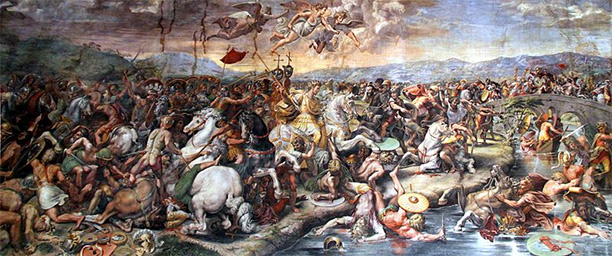
When the Western Roman emperor Constantius died in 306 ce, his son, Constantine, was named the next emperor at York (in present-day Britain). However, in Rome, Maxentius laid claim to the same title. For nearly six years, Constantine avoided a direct confrontation. 

A decisive and historic battle in 312 ce, the Battle of Milvian Bridge was fought between two challengers to the Roman Empire's throne: Constantine and Maxentius. 

It resulted in Constantine I taking over as the sole emperor of this realm and Christianity was instated as the official religion of the Roman Empire. 

#WorldHistoryin3Points #ZacSangeeth
To continue reading about the war between the successors of the Roman empire and how it would shape the history of the world buy my book at amzn.to/3siP2sr
To continue reading about the war between the successors of the Roman empire and how it would shape the history of the world buy my book at amzn.to/3siP2sr
@HachetteIndia @romanhistory1 @byzantinephil @ByzantineLegacy @romebyzantium @DeepintoHistory @whencyclopedia #Romanempire #thebattleofthemilvianbridge #Byzantium #Constantine #RomanHistory #HistoryofRome #AncientRome
@threadreaderapp unroll
• • •
Missing some Tweet in this thread? You can try to
force a refresh

























